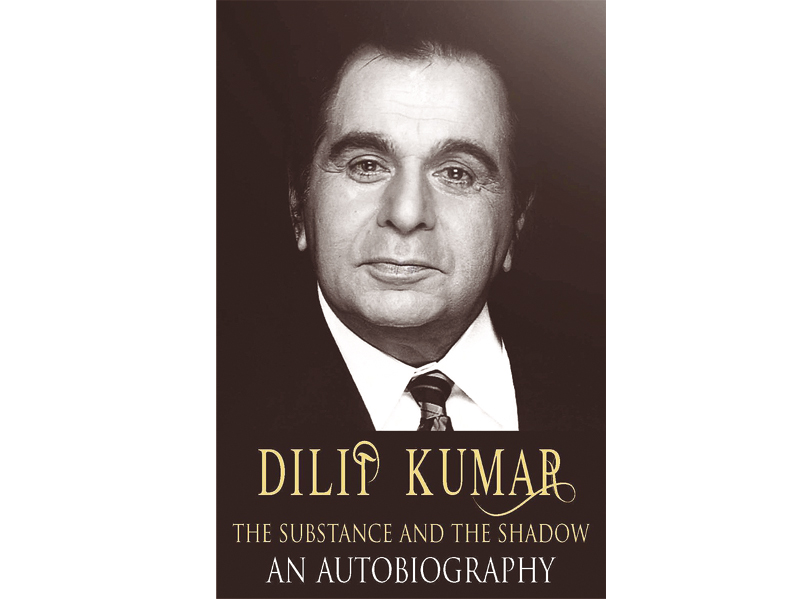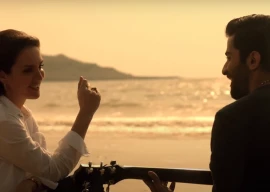
Considering the star’s exceptionally large fan following, Dilip Kumar’s autobiography The Substance and the Shadow is being widely discussed in both India and Pakistan. It is for the first time that the legendry actor has opened up about his personal life. The book is based on interviews recorded over several years and transcribed by senior journalist Udayatara Nayar.
Dilip Kumar, born in Peshawar on December 11, 1922, worked in 62 films from 1944 to 1998. His father, Mohammed Sarwar Khan, who was involved in fruit trade shifted to Bombay in the mid-1930s for better business prospects. Kumar studied at Barnes School in Deolali, Maharashtra and later at Khalsa College in Bombay where Raj Kapoor became his close friend. The two regularly met on Sundays for which Kumar was almost always late. When Kapoor suffered a stroke, Kumar was in Pakistan to inaugurate Fatimid Foundation’s blood bank in Peshawar. After he returned to Bombay and learnt about Kapoor’s condition, he immediately left for Delhi to meet his hospitalised friend. When he finally sat beside his friend, he said, “Lalay, aaj bhi mein nay der kardi…” (Friend, I am late today too).
The Substance and the Shadow is, however, not an entirely honest memoir. It remains mostly tight-lipped on Dilip Kumar’s affairs with actors Kamini Kaushal and Madhubala. It also fails to mention Suchitra Sen, who starred alongside him in Devdas, and Meena Kumari, a co-star and a connoisseur of poetry much like himself. The only time Kumar mentions Madhubala is to explain why he could not marry her, explaining that her father wanted to turn the marriage into a business affair. But he remains mum about why she was replaced by Vyjayanthimala in the 1957 movie Naya Daur and the court case that lead to it.
Although Madhubala shared the story of her broken heart with film journalist Bunny Reuben while weeping uncontrollably, it remained unpublished due to the censorship rules at the time. “And finally, I will never forget… the dearest one who became a foe,” was the only line that featured from the interview. Dilip Kumar and Madhubala were not on talking terms even while filming romantic scenes for Mughal-e-Azam. He also did not attend the movie’s premiere because his sister Akhtar had married the film’s producer/director K Asif against his wishes.
Dilip Kumar, also known for his philanthropic work, reigned over Indian cinema for more than five decades. He has many prestigious awards to his credit, including India’s third highest civilian award, the Padma Bhushan, India’s highest award in cinema the Dadasaheb Phalke Award and Pakistan’s highest civilian award, the Nishan-e-Imtiaz. He even went on to win the Filmfare award for Best Actor eight times during his career. The book is, therefore, a must-read not just for Dilip Kumar fans but also for patrons of good cinema.
Shahabuddin Gilani is an editorial consultant for The Express Tribune.
Published in The Express Tribune, Sunday Magazine, December 7th, 2014.
1719315628-0/BeFunky-collage-(8)1719315628-0-405x300.webp)


1731329418-0/BeFunky-collage-(39)1731329418-0-165x106.webp)



1730355716-0/Copy-of-Untitled-(59)1730355716-0-270x192.webp)
1730276684-0/Copy-of-Untitled-(55)1730276684-0-270x192.webp)
1730095495-1/WhatsApp-Image-2024-10-28-at-11-04-18-(1)1730095495-1-270x192.webp)







COMMENTS
Comments are moderated and generally will be posted if they are on-topic and not abusive.
For more information, please see our Comments FAQ